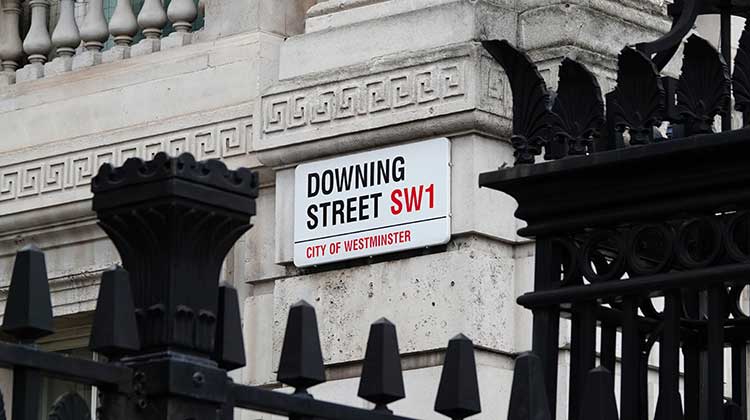Co-Production and the PIP Review: Joint Open Letter to the Minister
- Published
- 19/08/2025

Dear Minister,
Co-production of Timms Review
We are writing as anti-poverty, disability, carer, advice and co-production organisations following your commitment during the Commons stages of the Universal Credit (UC) Bill that the forthcoming review of personal independence payment (the Timms Review) will be co-produced with disabled people.
We strongly welcome your recognition of the importance of lived experience in policy development. Co-production leads to more effective, just and workable policies – particularly for disabled people and people living in poverty who are too often left out of decisions that directly affect their lives.
This commitment not only provides real opportunities for the Timms Review but also opens the door for the department to look at how co-production can become a more permanent feature of the policymaking process.
However, co-production must be about more than consultation and mere presence at the table. It means working with disabled people and their organisations in shaping the scope, process and outcomes of the review.
It values people not just as service users but as experts in their own experience – able to reflect critically, ask powerful questions and help design solutions that work in the real world.
There is a real opportunity here to repair trust. The recent UC Bill process and the previous government’s unlawful consultation on changes to incapacity benefits have deepened existing mistrust in the Department’s willingness to meaningfully engage. And research has also shown that the social security system itself perpetuates stigma towards people receiving benefits.
It is clear that the co-production of the review will be put under careful scrutiny by both stakeholders and parliamentarians. If the review is to have credibility and get buy-in from disabled people, MPs and other key stakeholders it’s vital that it is robust, inclusive and transparent. That’s why we are setting out four practical steps that we believe will ensure that the Review is designed and delivered in a way that rebuilds trust and sets it up for success.
1. Ensure broad and balanced representation
You have rightly committed that the Review group will be majority-led by disabled people and Disabled People’s Organisations. This is vital - but representation must also reflect the diversity of the disabled community, including people with experience of navigating the benefits system, people living in poverty, and those from minoritised groups.
Selection should be careful to avoid prioritising unrepresentative voices, or engagement which could be seen as tokenistic. It is also essential that, alongside lived experience voices, other groups with a direct stake in PIP such as unpaid carers and other key experts including welfare rights advisers are involved. Their input would provide practical insight into how the system operates on the ground.
2. Monitor and evaluate the co-production process
To ensure the Review is inclusive and functioning well, the Department should carry out ongoing evaluation of the co-production process. The final evaluation should be completed and published ahead of the general debate on the Review’s outcome, to demonstrate that the process has been open, accountable and taken seriously. This should include anonymous feedback from participants.
3. Commit to full transparency
Openness and transparency about the progress of the Review will help to reassure disabled people and parliamentarians that the process has been conducted fairly and rigorously.
We think the best way to achieve this would be to commit to: publishing a final report for the Review, including a comprehensive summary of the results of the engagement and consultation undertaken, which should be put before MPs ahead of the general debate on the Review outcome; ensuring that minutes from review meetings are published alongside this report; and publishing the details of the process for the work of the Review as soon as this has been designed over the summer.
4. Ensure meaningful parliamentary scrutiny
We welcome your commitment that there will be a ministerial oral statement on the outcome of the Review followed by a general debate. But we know that MPs raised significant concern about the lack of parliamentary scrutiny during the UC Bill process.
To ensure proper scrutiny and accountability, the government should go further and ensure that MPs are invited to debate and vote on a substantive motion to approve the outcome of the review.
The UC Bill showed what happens when disabled people and parliamentarians feel excluded from decisions that reshape our social security system. The Timms Review is an important opportunity to do things differently - to demonstrate a new commitment to transparency, participation, and policy grounded in real experience.
We’re encouraged by the early signs that the government has started out on the right foot with the process. The recommendations we’ve set out here offer a clear and achievable way to ensure that the Timms Review delivers on the government’s ambitions. We look forward to working closely with you to make this vision a reality.
Yours sincerely,
Anela Anwar, Chief Executive, Z2K
Thomas Lawson, Chief Executive, Turn2us
Liz Bayram, Chief Executive, Advice UK
Jen Clark, Economic and Social Rights Lead, Amnesty International
Helen Walker, Chief Executive, Carers UK
Stewart McCulloch, CEO, Christians Against Poverty
Tom MacInnes, Director of Policy, Citizens Advice
Geoff Fimister, Co-Chair, Disability Benefits Consortium
Chris Brill, CEO, Expert Link
Cath Stanley BEM, Chief Executive, Huntington's Disease Association
Nimrod Ben-Cnaan, Head of Policy and Profile, Law Centres Network
Sarah Hughes, Chief Executive Officer, Mind
Charlotte Gill, Head of Campaigns and Public Affairs, MS Society
Alan Markey, Chair, National Association of Welfare Rights Advisers
Danny Sriskandarajah, CEO, New Economics Foundation
Mark Winstanley, Chief Executive, Rethink Mental Illness
Michael Wordingham, Head of Policy, Royal National Institute of Blind People (RNIB)
Helen Barnard, Director of Policy, Research & Impact, Trussell